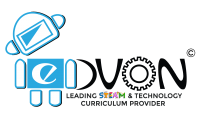Coding for Kids
Coding for kids can seem daunting at first, especially if you’re not a tech-savvy parent. However, several benefits come with learning to code. It offers one of the best ways to teach your kid life skills (such as problem-solving) and technical skills at the same time. When you teach a child to code, they’re ultimately exposed, cognitively, to a new way of learning. They realize the possibilities of bringing their fun ideas, such as games or social tools for their friendship groups to life. Also, encouraging kids to appreciate coding is a big part of aligning them with the accelerating rate of global change. In this ever-evolving world, the skills deemed necessary for survival seem more changeable than ever. Coding and programming are skill sets that have long been existing for a while. However, interest in the field has rapidly increased recently. Many young parents are finding it wise and necessary to enroll their children in programming courses from as early as the ages of five. Digital technology is a big part of many kids’ lives, as they have access to smartphones, video games, video entertainment websites, and even robots. What drives this technology is software or computer programs that are created by coding. Like learning about biology and chemistry, kids need to understand the building blocks of an integral part of their lives. They need to realize that what happens when they use technology is not magic, and they can create programs that can be useful.
⇒ Importance of Robotics for Kids ⇐
Importance and Benefits of Coding for Kids
There is a range of benefits that come with enrolling your child on a programming course. For instance, mental acuity and dexterity are skills they will likely develop whilst adapting to the computational thinking needed for such a course. More so, adolescents engaging in classes have a distinct opportunity to develop the necessary deep cognitive skills and swift recall that comes along with a methodical, problem-solving process mentality. Computer programming courses designed for children tend to lean towards gaming apps and other kid-centric projects. A recent study by Gallup and Google shows that it is a more appropriate way to keep younger students engaged whilst teaching real-world skills. Popular and well-known programming language software for beginners include Python for kids, WordPress for kids, Scratch Programming, and MIT App Inventor.
⇒ Python Programming ⇐
- Coding requires children to develop problem-solving skills in different situations. It will come in handy when they encounter circumstances that deem it necessary for them to break down complex components by providing clever hypotheses and systematic approaches towards solving problems.
- Programming teaches children how to respond to/handle errors. The skills help to predict problems that are likely to emerge and write the codes to suit whilst preventing an entire program crash.
- Young children can develop an awareness of cause and effect as they code; they will learn how things work and also learn to create things that work.
- It’s likely your kids improve their perseverance skills through the duration of a programming course. This can help children analyze what is not working, why it is not working, and figure out how to correct it.
- Kids develop the algorithmic thinking, an important ability to define clear steps to solve a problem. Without being conscious of it, children will employ algorithmic thinking without knowing it, especially when dealing with maths and science. Learning to code is an effective way to introduce them to higher computational concepts like repetition, sequencing, and conditional logic.
⇒ Coding in Scratch ⇐
Finally
Every industry is rapidly changing, and technology is at the helm of that change. International races towards developmental milestones are quickening; be it in Asia, Africa, Europe, or the Americas. No one can be sure of what the future of work will look like for today’s kids, but we can do our best to prepare them. The future global economy rests in the hands of today’s young, getting them on par immediately with the most relevant knowledge bases enables them with an advantage over their peers and a likelihood of succeeding in later life.









